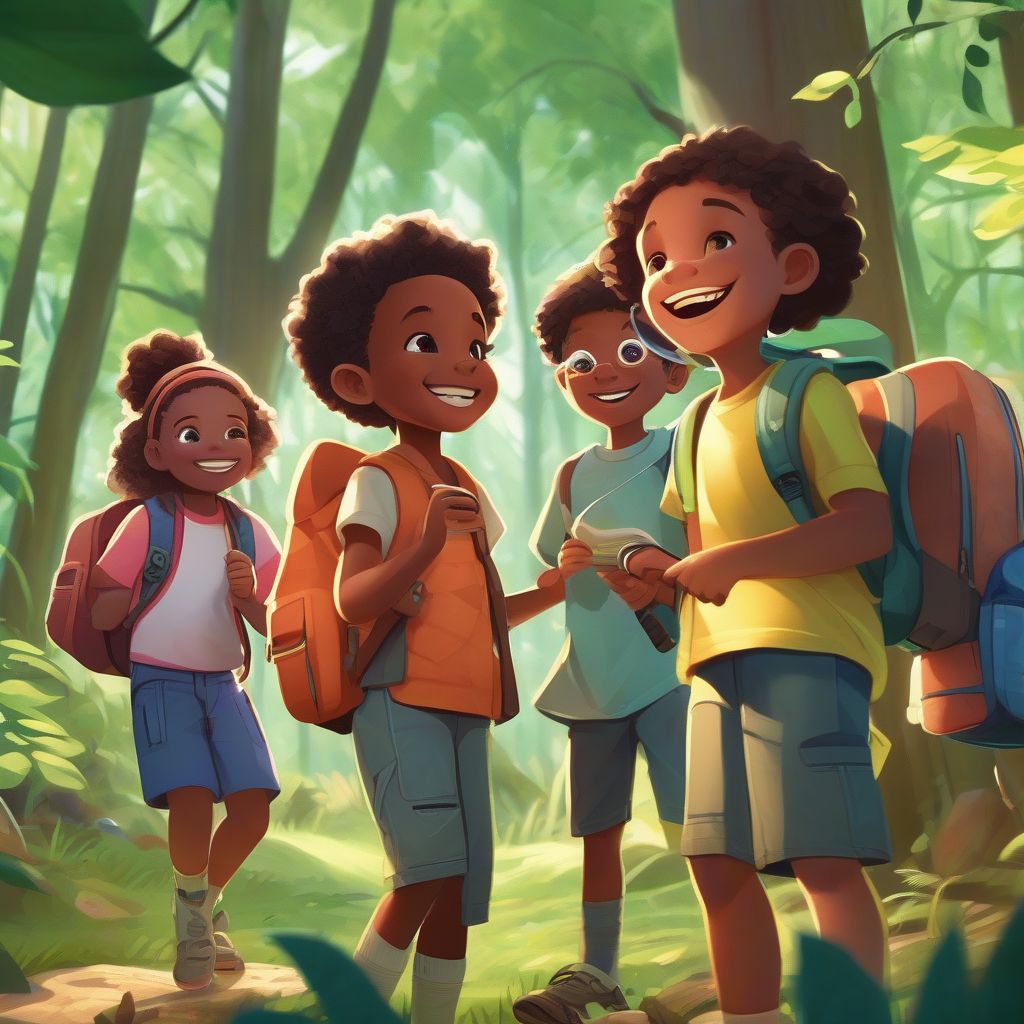“Let nature be your teacher.” It’s a simple phrase, yet it holds profound wisdom. We all crave a connection with the natural world, and what better way to foster that connection than through engaging and educational outdoor activities? Whether you’re a parent, educator, or simply someone who values the power of hands-on learning, this comprehensive guide will equip you with everything you need to know about outdoor educational activities.
What are Outdoor Educational Activities?
Outdoor educational activities encompass a vast and exciting realm of learning experiences that take place in the natural world. From exploring local parks to conducting science experiments in your backyard, the possibilities are limitless. These activities go beyond traditional classroom settings, offering children and adults alike the opportunity to engage all their senses, connect with their surroundings, and develop a deeper understanding of the world around them.
The Benefits of Outdoor Educational Activities
Outdoor education isn’t just about having fun in the sun; it offers a wealth of benefits for individuals of all ages:
1. Enhanced Learning and Development
Cognitive Development: Studies have shown that outdoor learning can boost cognitive function, improve memory, and enhance problem-solving skills. By interacting with the natural environment, children develop critical thinking abilities and learn to apply their knowledge in practical ways.
Physical Development: Outdoor activities naturally encourage physical activity, promoting gross motor skills, balance, and coordination. Running, jumping, climbing – these actions help build strong bodies and healthy habits.
Social and Emotional Growth: Collaborative outdoor activities foster teamwork, communication, and leadership skills. Children learn to negotiate, cooperate, and build relationships in a fun and engaging environment. Moreover, spending time in nature has been proven to reduce stress and anxiety, promoting emotional well-being.
 Children Exploring Nature
Children Exploring Nature
2. Fostering Environmental Stewardship
One of the most significant benefits of outdoor education is its ability to cultivate a deep appreciation and respect for the environment. When children engage with nature firsthand, they develop a sense of wonder and responsibility for its preservation. This connection lays the foundation for environmentally conscious individuals who are passionate about protecting our planet.
3. Improved Health and Well-being
In today’s technology-driven world, it’s easy to get caught up in screens and indoor activities. Outdoor education provides a much-needed antidote to sedentary lifestyles. Exposure to sunlight boosts Vitamin D levels, fresh air invigorates the senses, and physical activity improves cardiovascular health.
Examples of Outdoor Educational Activities
The beauty of outdoor education lies in its versatility. Here are a few examples to spark your imagination:
For Younger Children:
- Nature Scavenger Hunt: Create a list of natural items for children to find, like a smooth stone, a red leaf, or a pinecone.
- Building a Fairy House: Encourage creativity and imagination by gathering natural materials to build a miniature fairy dwelling.
- Mud Kitchen: Embrace the mess! A mud kitchen allows children to engage in sensory play, experiment with textures, and explore their creativity.
For Older Children and Teens:
- Geocaching: This modern-day treasure hunt combines technology with outdoor exploration. Use GPS coordinates to locate hidden caches and learn about local history along the way.
- Orienteering: Develop navigation and map-reading skills by navigating through unfamiliar terrain using a compass and map.
- Citizen Science Projects: Contribute to real scientific research by participating in projects like bird counts, water quality monitoring, or insect identification.
For Adults:
- Nature Photography: Capture the beauty of the outdoors while learning about composition, lighting, and wildlife behavior.
- Gardening: Connect with the earth and grow your food. Gardening teaches patience, responsibility, and provides a source of fresh produce.
- Hiking and Nature Walks: Explore local trails, learn about the flora and fauna of your region, and enjoy the physical and mental benefits of being in nature.
Tips for Planning Successful Outdoor Educational Activities
1. Safety First: Always prioritize safety. Choose age-appropriate activities, pack necessary supplies like sunscreen and water, and be aware of potential hazards in the area.
2. Set Clear Goals: What do you hope participants will learn or gain from the activity? Having defined objectives will help you structure the experience and measure its success.
3. Make it Interactive: Encourage active participation through hands-on activities, open-ended questions, and group discussions.
4. Embrace the Unexpected: Nature is full of surprises! Be flexible and adaptable, and allow for spontaneous moments of discovery.
5. Connect with Experts: Reach out to local organizations like nature centers, environmental groups, or park rangers. They can provide valuable resources, guided tours, or even lead activities for your group.
Integrating Outdoor Education into Everyday Life
Outdoor education doesn’t have to be a grand event; it can be easily integrated into everyday routines. Take your child’s math lesson outdoors, read a book under a tree, or enjoy a family picnic in the park.
- Wilson, Ruth (Author)
- English (Publication Language)
- Rodenburg, Dr. Jacob (Author)
- English (Publication Language)
- Gilbertson, Ken (Author)
- English (Publication Language)
- Bisson, Christian (Author)
- English (Publication Language)
- Carolyn L Kennedy (Author)
- English (Publication Language)
- English (Publication Language)
- 280 Pages - 12/01/2015 (Publication Date) - Redleaf Press (Publisher)
- Worroll, Jane (Author)
- English (Publication Language)
- Wilderness Navigation
- Burns, Bob (Author)
- Author(s): Gilbertson,Bates,Mclaughl
- Published: 8-11-2005
- Publisher: Globe Pequot Press.
- Format: Paperback, 224 pages.
Conclusion: Embrace the Transformative Power of Learning in Nature
Outdoor educational activities offer a wealth of benefits, fostering intellectual, physical, social, and emotional growth. By embracing the natural world as our classroom, we unlock a world of wonder, discovery, and meaningful learning experiences for individuals of all ages. So, step outside, explore, and let nature be your guide on this incredible journey of discovery!
We encourage you to share your favorite outdoor educational activities and tips in the comments below. Let’s inspire each other to make learning in nature an integral part of our lives!










